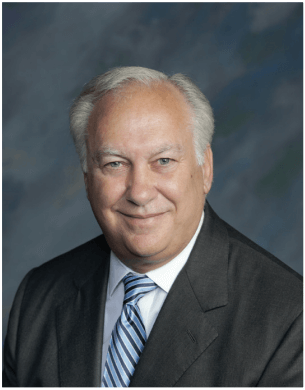COMPELLING ARBITRATION WHEN THINGS GET TENSE: 2ND CIRCUIT RULING IN ALLSTATE V. MUN
Posted on Feb 10, 2017 |Publications
 By: Richard Brodsky, Esq.
By: Richard Brodsky, Esq.
July, 2014
“Tense” can be a good thing. The 2nd Circuit just reminded us that your arbitration agreements need to be clear as to the point in time when compulsory arbitration clauses are effective. The “tense” of your verbs matters.
In Allstate v. Mun, Docket No. 13-1424-cv. (decided May 6, 2014), the Court allowed Allstate to proceed with a civil suit claiming fraudulent billing by a medical service provider in spite of broad ADR language. The suit sought to recover $500,000 already paid by Allstate for purported medical testing as a consequence of the quick-payment provisions of New York's No-Fault laws. Defendant Mun sought to compel arbitration under the terms of the state insurance law, which provides, inter alia, “Every insurer shall provide a claimant with the option of submitting any dispute involving the insurer's liability to pay first party benefits….” NYS Ins. Law 5106-(b). As The 2nd Circuit acknowledged “The arbitration provision in the Allstate policies appears quite broad. It contemplates arbitration if the claimant and insurance company “do not agree regarding any matter relating to the claim.” N.Y. Comp. Codes R. & Regs. tit. 11, $ 65-1.1(d); see J.A. 146-47. Allstate at 3.
Not so fast. The fact that payments were made first, followed by a civil litigation claim later, turned the case. “Defendants were “claimants” for “first party benefits” when they submitted their claims. If Allstate had disputed those claims without paying them promptly, disputes contemplated by the statute would have arisen. But Allstate paid Defendants' claims in full. Now, years later, when Allstate seeks recovery for losses caused by Defendants' alleged fraud, Defendants are no longer “claimants” asserting a right to first party benefits, and there is no “dispute involving the insurer's liability to pay first party benefits.” An arbitrable dispute is one between the insurance company and a “person making a claim for first-party benefits.” N.Y. Comp. Codes R. & Regs. tit. 11, $ 65-1.1(d). Defendants are no longer “making a claim.” They made a claim; they made many claims. And those claims were promptly paid by Allstate. Allstate's fraud suit therefore does not raise a dispute between it and a person “making a claim for first-party benefits.” The arbitration provision does not apply.” Allstate at 3. (empahsis in original).
It's a “tense” analysis to be sure. But there's a common-sense logic to the Court's position, even if defendants' right to arbitrate becomes a victim of the very speedy-payment provisions medical providers love. There's also common-sense logic for insurers and insured to set forth clearly the scope of arbitration when the timing of events may have an impact on the rights of either side.
_________________________________________________________________________________
Richard Brodsky, Esq., a former New York State Assemblyman, is a member of NAM's (National Arbitration and Mediation) Hearing Officer Panel and is available to hear arbitrations and mediations throughout the New York Metro area.
Click here to view Richard Brodsky's resume.
For any questions or comments, please contact Jacqueline I. Silvey, Esq. / NAM General Counsel, via email at jsilvey@namadr.com or direct dial telephone at 516-941-3228.